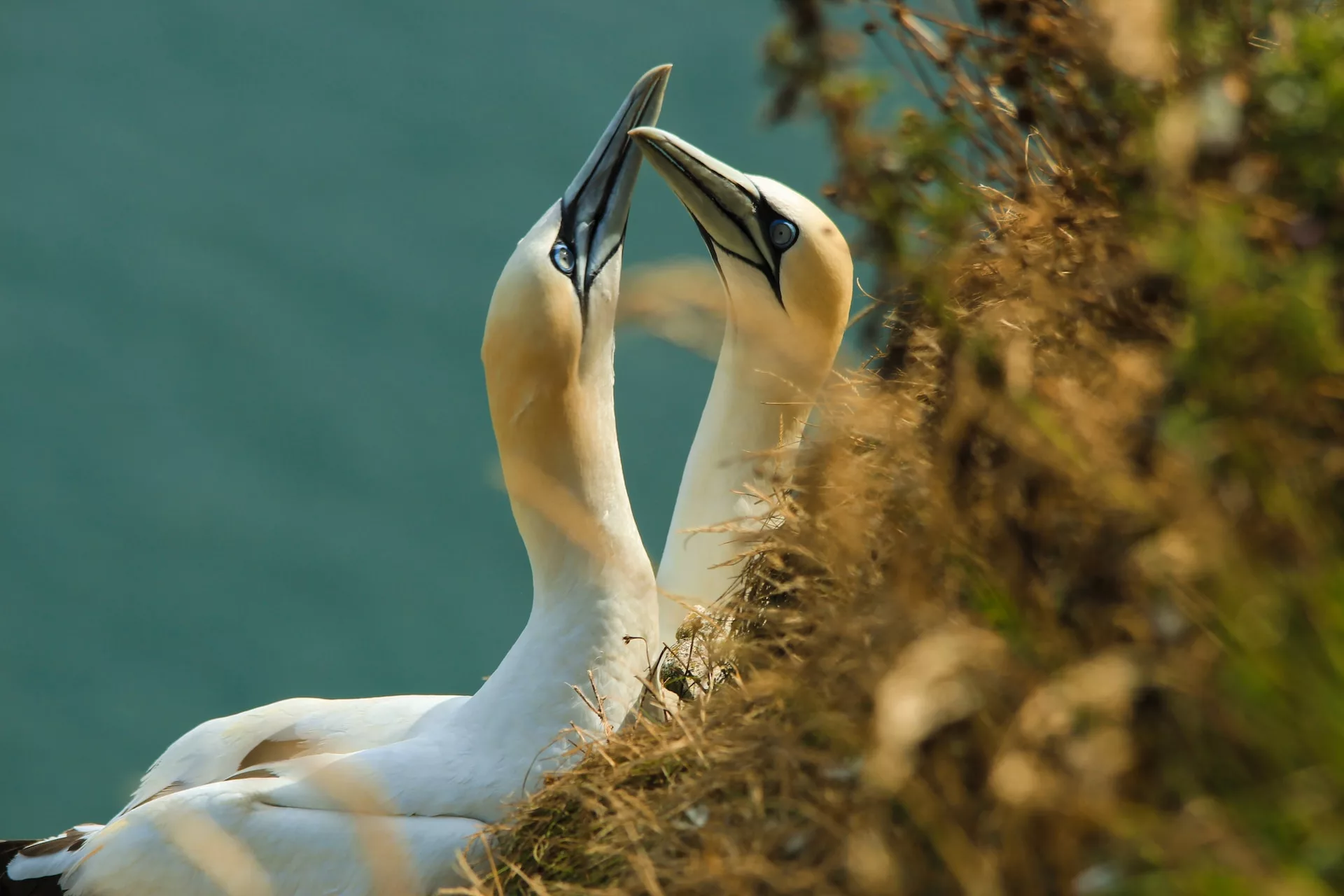Being bold might not be useful for seabirds. Image credits: Denley Photography, via Unsplash.
Seabird couples with similar personalities are more likely to breed successfully, making them less likely to divorce than pairs with a personality mismatch, a new study suggests. Working with two colonies of black-legged kittiwakes (Rissa tridactyla) in Svalbard, a team from the University of Liverpool found that breeding pairs alike in their degree of boldness were more likely to raise their chick successfully. As a result, these pairs were more likely to stay together rather than find a new partner.
Kittiwakes can live into their twenties and they raise one or two chicks per year. As with many long-lived seabirds, kittiwakes are monogamous (mating with only one other at a time) and often stay with their partner for many years as adult survival rate is high (83% in Svalbard) and there can be benefits to staying loyal for breeding success. In contrast, divorce carries risks; the time taken to find a partner may push breeding to later in the season, and the quality of offspring might suffer thanks to the pair being less familiar. As both parents must contribute to feeding chicks and guarding the nest for successful breeding, these birds depend on their partners for breeding success. Incompatibility and conflict in the couple can carry heavy costs.
Personality—consistent behavioural differences between individuals—is one source of incompatibility. So-called “bolder” animals are more tolerant of risk; they are generally more likely to take risks in interacting with new objects (the focus of this study), other organisms, and potentially dangerous areas. Contrasting boldness in a pair can affect their ability to coordinate their behaviour to raise their young, potentially decreasing their chances of success.
Fionnuala McCully, the lead author of this research, highlighted why personality matters. “If you and your partner have similar personalities, you might also make similar decisions,” she said, in a press release. “And when your partner is more predictable, it is easier for you to make informed choices which benefit you both.”
If you and your partner have similar personalities, you might also make similar decisions.
Fionnuala McCully
Researchers measured kittiwakes’ boldness by categorising their reactions to a blue plastic penguin toy presented to them whilst they were sat on the nest: a method called novel object testing, which was repeated across four years. These behavioural categorisations spanned a spectrum of boldness, ranging from staying sat at the nest (boldest), to the bird leaving the nest (least bold). The proportion of time each bird spent in these behavioural states whilst undergoing novel object testing was used to quantify boldness.
Using 13 years of breeding data, boldness was related to the outcome of a pair’s breeding attempt (whether their chick survived to 15 days old: a previously used proxy for reproductive success) and whether the pair bred together the following year. This revealed an indirect link between personality and divorce. Couples with differing boldness levels were more likely to divorce and re-pair because of their higher chances of failing to raise a chick, a key driver of divorce in this largely faithful species.
Nevertheless, this occurs within the socially complex environment of a seabird colony. Other factors also affect partner choice. Reflecting this, the researchers only found evidence that kittiwakes were more likely to pair up according to personality at one of two study colonies, and although there was evidence for birds finding a more similar partner following divorce, this evidence was relatively weak.
Colony characteristics may influence these results. At the Grumant colony, there was weak evidence of birds pairing by personality, perhaps due to high predation pressure at this colony increasing the importance of well-coordinated nest defence. This coordination could be achieved by compatible personalities, driving this pattern of pairing by similar personalities despite limited partner choice in this small colony. Contrastingly, Pyramiden (a larger colony) had weak but contrasting evidence of birds pairing with those of the opposite personality, demonstrating that other factors carry more importance in partner choice than personality.
Increasing coverage of colonies and using alternative behavioural assays to examine other facets of personality might help resolve these inconsistencies. A greater understanding of the mechanisms governing divorce in kittiwakes would also help analysis of the costs and benefits to divorce and re-pairing.
Nevertheless, this research adds to our knowledge of the putative relationship between animal personality and reproductive success. The influence of personality on reproductive success however pales in comparison to the effects of changes in food supply due to climate change and over-fishing, with these causing reduced availability of kittiwakes’ prey (sand eel, sprat, and other small fish). Simultaneously, climate change is driving kittiwakes out of the southern edge of their breeding range in the Bay of Biscay and Celtic Seas, leading to recent declines.





